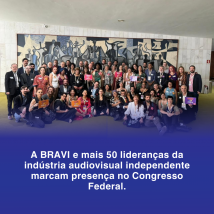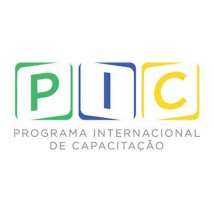
The hosts: Justina Siegmund-Born (Berlin Partner), Elmar Giglinger (Medienboard Berlin-Brandenburg), Petra Mueller (Film- und Medienstiftung NRW), Konstanze Welz (German Films), Christoph Fey (Entertainment Master Class)
TV PILOTS/DEVELOPMENT SCORECARD: Follow the action during upfront season
The event was hosted by German funding bodies Medienboard Berlin-Brandenburg and Film- und Medienstiftung NRW, alongside German Films, MFG Baden-Wuerttemberg, Entertainment Master Class, Berlin Partner and ZukunftsAgentur Brandenburg. It was sponsored by Audio Network, and was held in cooperation with Variety.
Medienboard Berlin-Brandenburg celebrates its 10th anniversary this year, and that provides an opportunity for the organization’s execs to take stock, reassess priorities, and face the challenges to come.
Elmar Giglinger, who is managing director, media business development, at Medienboard, told Variety: “Our main priority is to keep Berlin-Brandenburg the number one for movies and digital media in Germany, and we want to keep the growth and the fantastic dynamic we have in the region.”
One challenge is that “we don’t have the big television channels in the capital region,” he said. Despite that the digital media segment is strong. “We have the biggest growth there and the biggest and most dynamic development,” he said.
While celebrating the achievements of the past 10 years, Giglinger is also looking ahead to the next 10 years, and predicts that big changes are in store for the biz.
“The media landscape has changed a lot in the past 10 years, and will change a lot in the next 10 years. One challenge is to find proper business models for now, and for the future.
“The media landscape is changing so fast it is hard to tell what the situation will be like in 10 years’ time. But one thing that is pretty sure is the new platforms will get more and more important. The non-linear media will grow a lot, especially the SVOD services, and so our role will be to fund the right projects to allow the media companies to find their way through the changing media landscape.”
MIPTV and sister event Mipcom, the biggest television trade fairs for the international industry, are perfect for networking and marketing, Giglinger said.
Petra Mueller, CEO of Film- und Medienstiftung NRW, was also at the cocktail at MIPTV, which she sees as a great opportunity for the next generation of entertainment professionals to make new contacts within the global biz.
“It is important that the young talent in NRW, and the rest of Germany, is related to the international industry,” she said.
“Due to the digital transformation, the industry is changing fast. That makes it even more difficult for the talents to get their foot in the door.”
MIPTV provides an opportunity to strengthen relationships between the international industry and German biz execs.
“What we like to offer here — with this reception every MIP-Monday for example — is that the participants from all over Germany and their international colleagues have the opportunity to meet and connect,” she said.
As the global entertainment biz continues to evolve at a fast pace, Film- und Medienstiftung NRW is looking to help producers adapt.
“It is important that producers are aware of the disruptive changes in the distribution and broadcasting landscape, that they see the fragmentation, and that they grasp the opportunities that the internet, platforms and VOD offer,” Mueller said.
The German broadcast groups, many of which are based in NRW, have been investing in TV and digital content businesses around the world, but Mueller urges them to also invest in local talent.
“They could take more interest in the grassroots people — in the talent that comes from Germany,” she said.
Germany production companies have been very successful at adapted international formats, but Mueller believes they should also focus on original shows.
“Right now TV schedules are full of international programming and Germans seem to be the masters of format adaptation. There may come a time beyond global brands, when you may need something original and specific. To foster this we started to fund format development for television,” she said.
As well as Giglinger and Mueller, the hosts at the cocktail were Justina Siegmund-Born of Berlin Partner, Konstanze Welz of German Films, and Christoph Fey of Entertainment Master Class.
The guests included David Briggs, Steve Springford and Colman Hutchinson of the U.K.’s boxatricks, Wolf Bauer of UFA, Benjamin Ruth of VICE, Regina Ziegler of Ziegler Film, Philip Borbely and Friedhelm Bixschlag of MMC, Sam Davis of Rowboat, and Philipp Steffens of RTL.
Other invitees included Georg Ramme, Arno Schneppenheim, and Marcus Wolter of Endemol; Alexander Krei and Thomas Lueckerath of DWDL; Helfried Spitra, Andrea Zuska and Michael Loeb of WDR; and Philipp Kreuzer of Bavaria.
 (David Briggs, Steve Springford and Colman Hutchinson of the U.K.’s boxatricks)
(David Briggs, Steve Springford and Colman Hutchinson of the U.K.’s boxatricks) (Elmar Giglinger of MBB, Wolf Bauer of UFA, Benjamin Ruth of VICE)
(Elmar Giglinger of MBB, Wolf Bauer of UFA, Benjamin Ruth of VICE) (Philip Borbely and Friedhelm Bixschlag of MMC)
(Philip Borbely and Friedhelm Bixschlag of MMC) (Sam Davis of Rowboat and Philipp Steffens of RTL)
(Sam Davis of Rowboat and Philipp Steffens of RTL)











